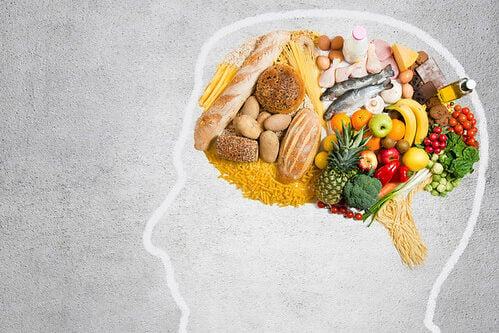As the sixth most common cause of death in the U.S. each year, Alzheimer’s disease can cause a great deal of suffering for people who have it and the people who love them. Although some treatments are available, diet plays a significant part. By considering these foods, caregivers and family members can help their loved ones preserve brain health and minimize cognitive decline.
Six Diet Options for Brain Health
Improving cognitive health may require a combination of treatment approaches, and nutrition plays an important role. Diet can affect a person’s energy, ability to focus, and more. By considering these nutrition options, families can find a way to preserve cognitive ability over time.
1. Leafy greens

Leafy greens provide critical nutrients that older adults need, and research suggests they may contribute to slowing cognitive decline. Frequent consumption of kale, spinach, broccoli, collard greens, and various options from the Brassica family are associated with higher cognition due to nutrients like beta carotene and vitamin K.
2. Berries

Berries are loaded with flavonoids that have antioxidant and anti-inflammatory properties.
Research suggests that a half-cup of strawberries or blueberries a few times a week can help to reduce memory loss, a common symptom of Alzheimer’s.
Berries also contain plenty of dietary fiber and minimal sugar, providing a sweet, healthy treat.
3. Oily fish
Fish high in omega-3 fatty acids has a positive correlation with a reduction in accumulation of harmful proteins in the brains of people with Alzheimer’s. These fats are unsaturated, and they are known to improve and maintain heart health in older adults. Experts recommend consuming fish like salmon or tuna a couple of times a week, highlighting the importance of choosing low-mercury options.
4. Nuts
Like fish, nuts are usually high in omega-3 fatty acids. The fatty acids in walnuts in particular show an association between consumption of the nuts and improved scores on cognition tests. As a source of protein as well, nuts can be an important part of a healthy diet.
5. Tea or coffee

A daily cup of tea or coffee does not necessarily contribute harm and can even help with cognition. Nutrition Journal published a review in 2025 highlighting benefits of caffeine consumption. Specifically, the authors noted that regular caffeine consumption is associated with higher cognitive performance in people with Alzheimer’s. However, research from The Journal of Nutrition outlines that adding sugar or saturated fats to the drinks may diminish the benefits.
6. MIND diet
Combining many of these popular brain-boosting foods into a diet can be somewhat tricky, which is why nutritionists have done some of the work. The MIND diet (Mediterranean-DASH Diet Intervention for Neurodegenerative Delay) is a series of dietary recommendations that are intended to preserve cognition, along with maintaining healthy body function. This diet, which recommends a combination of whole grains, leafy greens, beans, nuts, berries, poultry, and fish, provides a range of benefits for brain and heart health, diabetes, and cancer.
The ABC’s of Healthy, Alzheimer’s-Smart Eating
Knowing which foods to include is the first step, but getting a person to eat them consistently may be another matter. With these tips, family members and caregivers can help to improve the quality of the diet of people with Alzheimer’s.
A) Increase variety
Although many people may prefer to eat similar foods each day, variety is the key to nutritional gains. The Alzheimer’s Association recommends providing a range of delightful-looking foods throughout the day. Sweets, processed starches, and other treats should not necessarily be forbidden, but minimizing their presence can help to maintain nutritional goals.
B) Pay attention to food networks

For many people, it’s not just single food items but the way they are combined that matter. In 2020, the American Academy of Neurology reported that people who eat a diet rich in vegetables and unprocessed meats were less likely to have dementia. By comparison, participants whose diets centered around processed meats, starches, and sugars were more likely to develop signs of dementia over time. Increasing variety and quality of food items may be the key to minimizing symptoms of cognitive decline.
C) Treat causes of poor appetite
One of the reasons that people with Alzheimer’s struggle with diet is a loss of appetite, which often has varied causes. Caregivers should not assume that people refuse to eat healthy for personal reasons. Instead, as part of senior care services, it is important to evaluate possible triggers of poor appetite. Common causes include:
- a change in medication,
- poor-fitting dentures, or
- a loss of smell or taste.
Treating these issues may provide a return to dietary variety.
Brain health is something that gets more important for people as they get older. By trying out these diets and employing reasonable nutrition strategies, families can ensure that their loved ones with Alzheimer’s get the most from their cognitive abilities.











